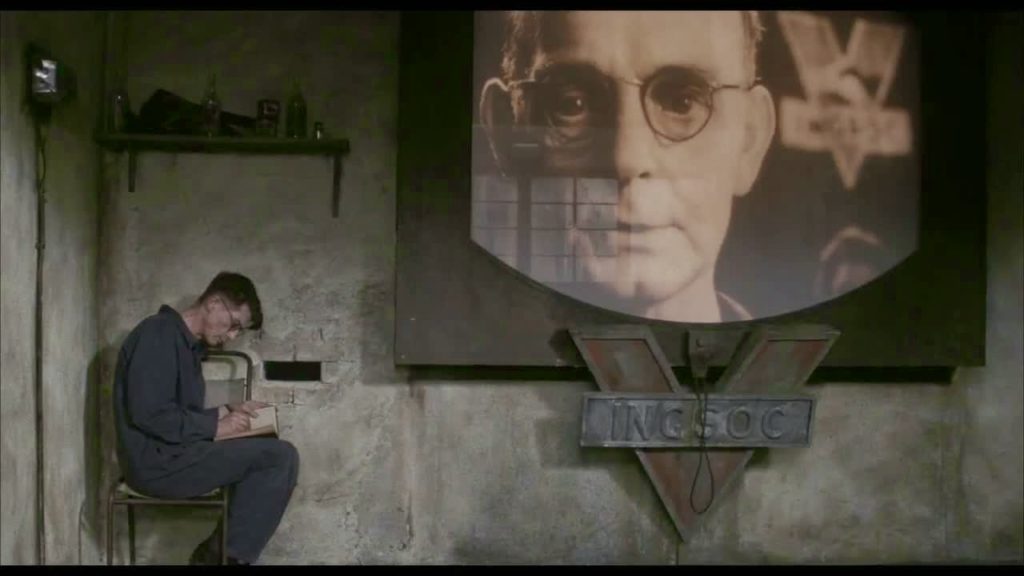Nineteen Eighty-Four (1984)

1984 is based on the classic science fiction novel by George Orwell, which offered a bleak vision of a future dystopia where one’s thoughts and actions were controlled by a totalitarian government ruled by an entity known only as “Big Brother.” The film has undergone a bit of change over the years on video, as the theatrical release features a washed-out color scheme and a Eurythmics soundtrack that has been mostly removed in more current versions (probably because director Radford was never keen on them). As for how this affects the overall feel of the film, I can no longer say, having seen a recent DVD release, but the overarching story remains intact. Orwell’s book is one that leaves such an indelible impression that it might be impossible to truly capture the scope and feel of it in a two-hour film. Still, writer-director Radford does an excellent job of extracting the core elements and filling in the blanks with a more cinematic feel. It may not entirely be Orwell’s 1984, but it’s a compelling piece all on its own.
In the hypothesized future, the people of Oceania are in a seemingly ceaseless war, living in a state of poverty, fear, and oppression. Even one’s will and thought are deemed worthy only if it promotes the common good. Their meals are rationed, and their every move is monitored through video cameras and police agents. Winston Smith (Hurt) is a worker for the state, one of many whose task it is to rewrite history, changing names and events to suit the needs of the will of the Party. Winston is a tool, but he has memories of life before the suffocating government, which he philosophizes about in his secret journal he keeps hidden in the walls of his apartment. Lately, Winston has been making eye contact with a younger woman named Julia (Hamilton), and soon the two begin exchanging private notes involving secret rendezvous. Soon thoughtcrime becomes sexcrime, making them part of the rebellion against the state.
1984 is certainly an interesting take on Orwell’s novel, and while it can be enjoyed (if you can enjoy a film this dour) entirely as its own entity, it is still just the essence of the book. Excellent performances fill the screen, with John Hurt giving one of his best as a man who is crumbled by inner doubts and defeatist realizations. Richard Burton is also impressive in this, his final theatrical performance. Solid cinematography by Roger Deakins supports the look of post-apocalyptic Europe, while the art and sets give an all-encompassing ambiance of oppression and despair. All of the elements are here to bring Orwell’s vision to life.
1984 is an intelligent and thought-provoking film that casts grim parallels to the state of the world, especially as governments looking for those who are threats to their existence more closely watch us. While Orwell’s novel may be forever relevant, Radford’s film, as competently made as it is, is still a far way off from being a substitute. However, for those looking for a philosophical musing on the state of the future, humanity, and the tendency of those in power to try to mollify the masses, it works quite well. A tough book to adapt, but Radford does a masterful job in this viscerally impressive presentation.
Qwipster’s rating: A
MPAA Rated: R for nudity, violence and disturbing images
Running Time: 113 min.
Cast: John Hurt, Suzanna Hamilton, Richard Burton, Cyrill Cusack, Gregor Fisher, Andrew Wilde
Director: Michael Radford
Screenplay: Michael Radford (adapted from the novel by George Orwell)
